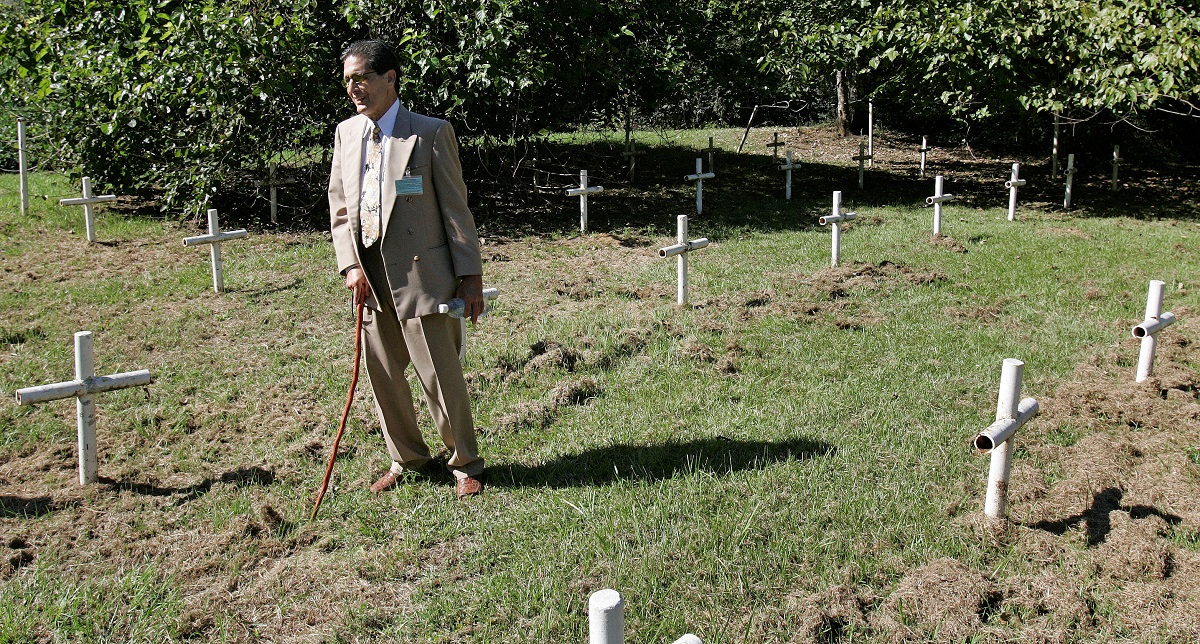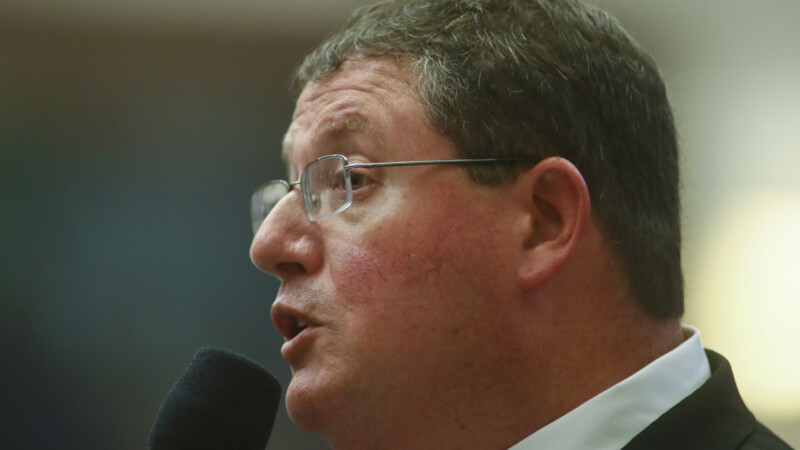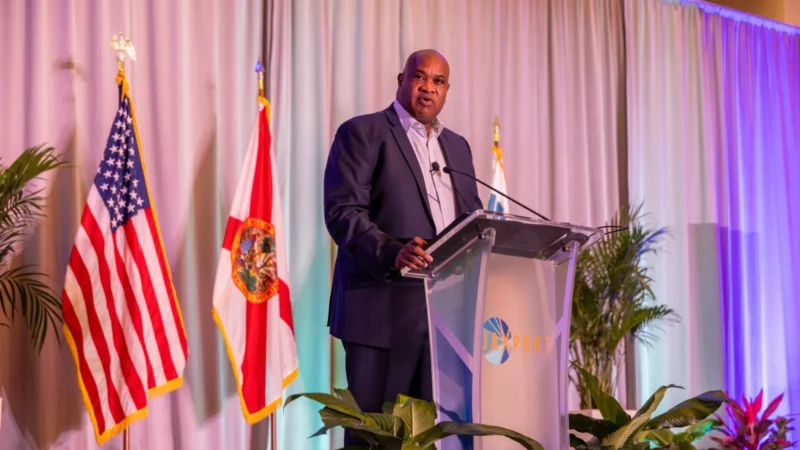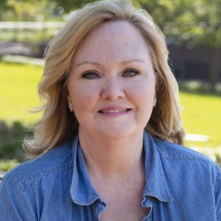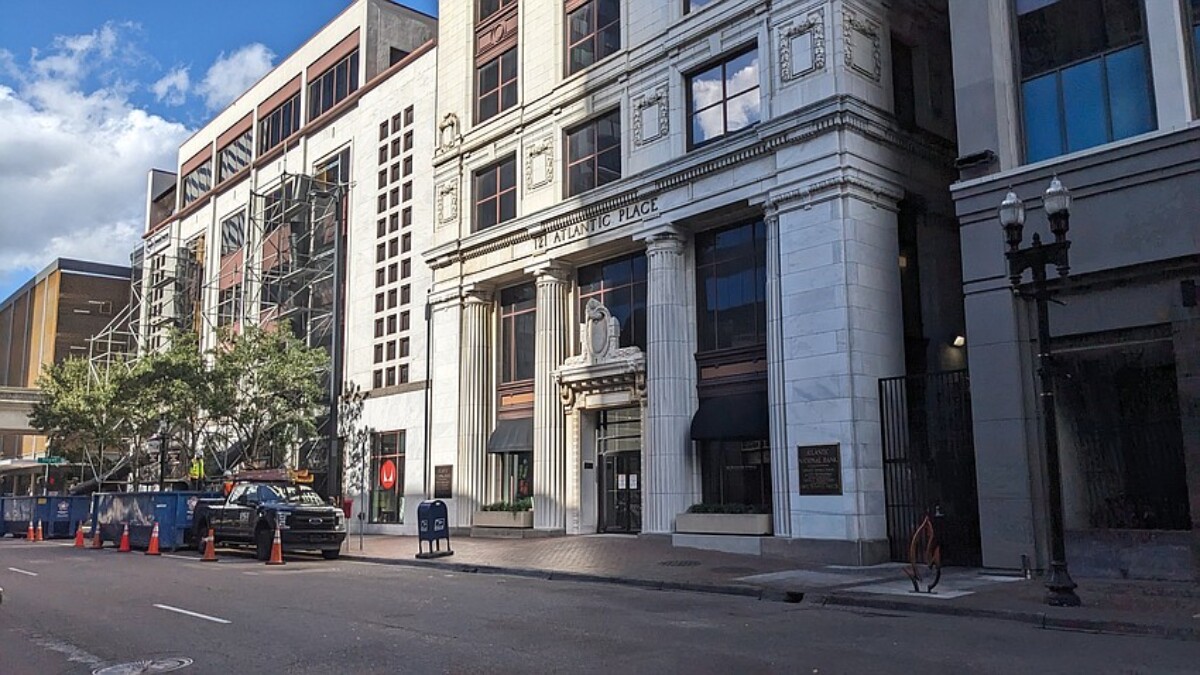Update:
The Florida Senate has voted 36-0 to compensate men who were abused as boys at two former state reform schools.
The Senate also approved a companion bill that provides a public records exemption for personal information of victims collected during the application process. Both bills will become law unless Gov. Ron DeSantis vetoes them, which is not anticipated.
Original story:
Note: This story contains graphic details about physical and sexual abuse.
Men who suffered abuse as boys incarcerated at two former state reform schools have been coming to the Florida Capitol for 16 years. They’re seeking restitution for the wrongs they endured in state custody.
This may finally be the year they get what they have long sought.
“I’ll be 77 years old. I was a 12-year-old boy when I was sent to — it was at that time called the Florida School for Boys.” Charles Fudge says on his third day at what became known as the Dozier School for Boys, he was hit 31 times with a leather strap.
“You can only imagine what that does to the bottom of a 12-year-old boy. I’ve lived with this for 65 years. It’s something that doesn’t go away and never will,” Fudge told the Senate Fiscal Policy Committee on the last day any public comment would be heard about a 2024 compensation bill.
A group of victims known as the White House Boys, all former students at Dozier, watched as the Florida House passed HB 21 on Thursday.
Rep. Michelle Salzman, R-Cantonment, acknowledged their long wait.
“Thousands of young boys from across the state of Florida were sent to the juvenile detention center for over 100 years,” Salzman said. “During that time there were hundreds of documented cases of physical assault, torture, rape, and even death. But the school remained open.”
In 2017, the state officially apologized for the abuse. The Legislature approved spending over a million dollars for burials and memorials for Dozier victims. But only now are lawmakers finally getting close to providing some restitution.
Proposed legislation would set aside $20 million to compensate surviving victims of the school’s Okeechobee and Marianna sites for what they endured decades ago.
“They chose this place called the white house to do the abuse.”
Attorney Troy Rafferty, who represents some of the victims, addressed the Senate Fiscal Policy Committee two days before the House passed its version of the bill.
“There were two rape rooms and two beating rooms,” Rafferty said. “The children lived every night in their beds wondering if they were going to be the one ripped out of their bed and taken to the white house.”
“When we talk about beatings or abuse, I just want the committee members to understand what you’re talking about,” Rafferty continued. “They used the same weapon every time. It was a 20-inch mallet with a leather strap attached to the end with metal rivets, so that when they hit the children, it would rip their flesh.”
Rafferty told the committee that over 180 students registered at Dozier remain unaccounted for. That’s in addition to more than 50 unmarked graves and unidentified human remains found at the sites.
“180 kids plus 55, do the math. That is the worst atrocity to ever happen to kids in this country’s history,” said Ralph Freeman. At age 67, he told lawmakers he’s the youngest of the Dozier survivors seeking justice.
“I’m a United States Marine, and I don’t have nightmares about the things they made me do in Cuba. I have nightmares about the things that was done to me in Dozier when I couldn’t defend myself,” Freeman told the committee. “Where was our protection? We were put in the hands of the state of Florida.”
The main Dozier site in Marianna held various names during its 111-year history, including the Florida State Reform School. Troubled children and teens were supposed to get training and education there.
A report from the University of South Florida Libraries says children were originally sent there for criminal offenses, such as theft and murder. But the law was later changed to add minor offenses, like truancy.
“12:45 one night, I can remember it just like it was yesterday. They came in the morning and pulled me out of bed and took me down to the White House and raped me — at 14 years old.”
Cecil Gardiner is a disabled Marine Corp veteran. He says he still sees the scars when he takes a shower. He told the Senate panel he never knew why the beatings happened — except for one time when he talked to a white student in the segregated school.
“I’ve been living this day in and day out,” Gardiner said, his voice cracking. “How can grown men be put into a position to take care of young children to rehabilitate them, and yet they end up abusing them?”
If the legislation is approved, it would become one of many claims bills passed in Florida. A claims bill enables someone to get money from the government — if they’ve been harmed by the government.
Under this bill, the Department of Legal Affairs would review the applications and determine whether a claim should be paid. It also allows the commissioner of education to award a standard high school diploma to those compensated in the program.
Before the final vote in the House, Rep. Salzman recounted her own history of abuse.
“There’s no words to describe what it’s like to be a young child and be ripped out of bed in the middle of the night from somebody that’s supposed to be protecting you and taking care of you — and beaten and sexually abused on a regular basis.”
Salzman then spoke directly to the victims watching in the House Gallery.
“What happened to you was not your fault. And today, your Florida Legislature is going to put their money where their mouth is and their vote where their heart is. And today, you will have justice, you have been heard.”
The bill passed the House 116-0. With one week remaining in the legislative session, the Senate is scheduled to take up its version of the bill (SB 24) on Monday.
9(MDEwNzczMDA2MDEzNTg3ODA1MTAzZjYxNg004))


